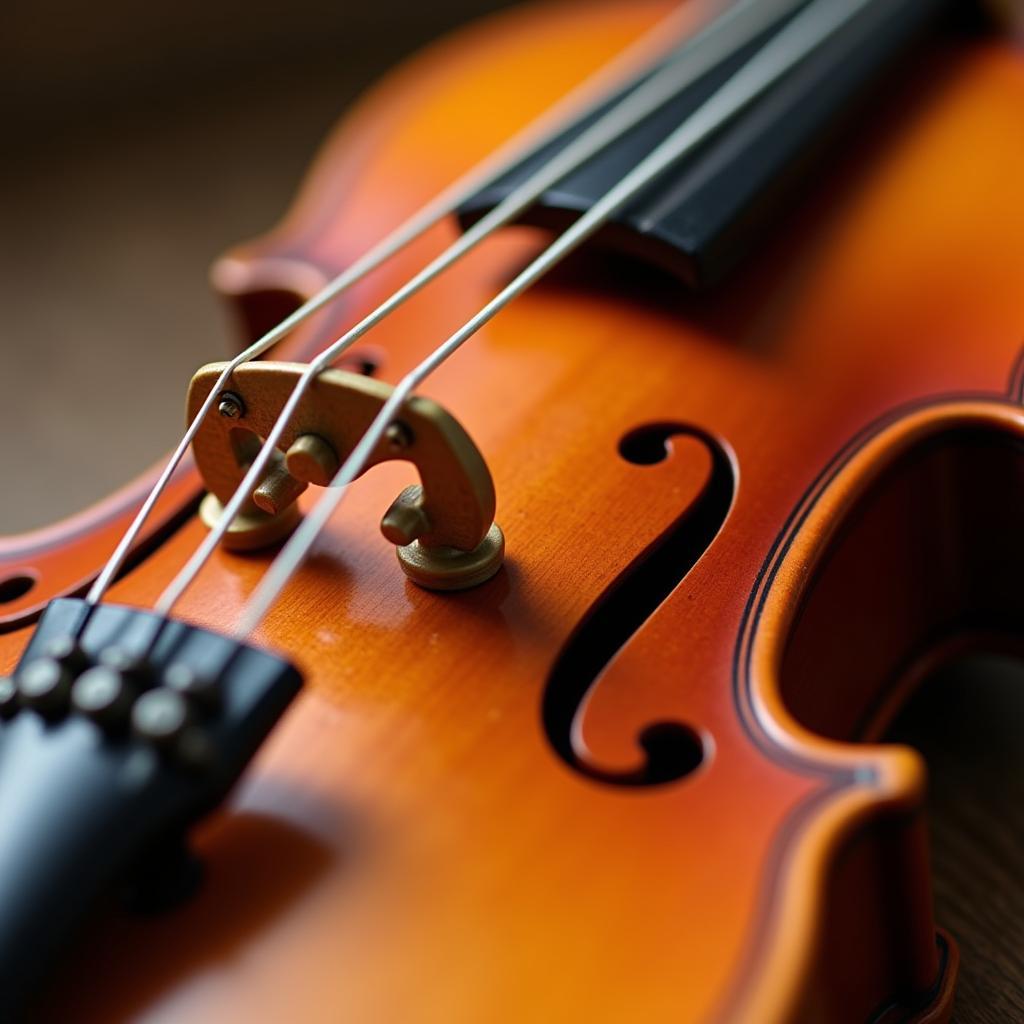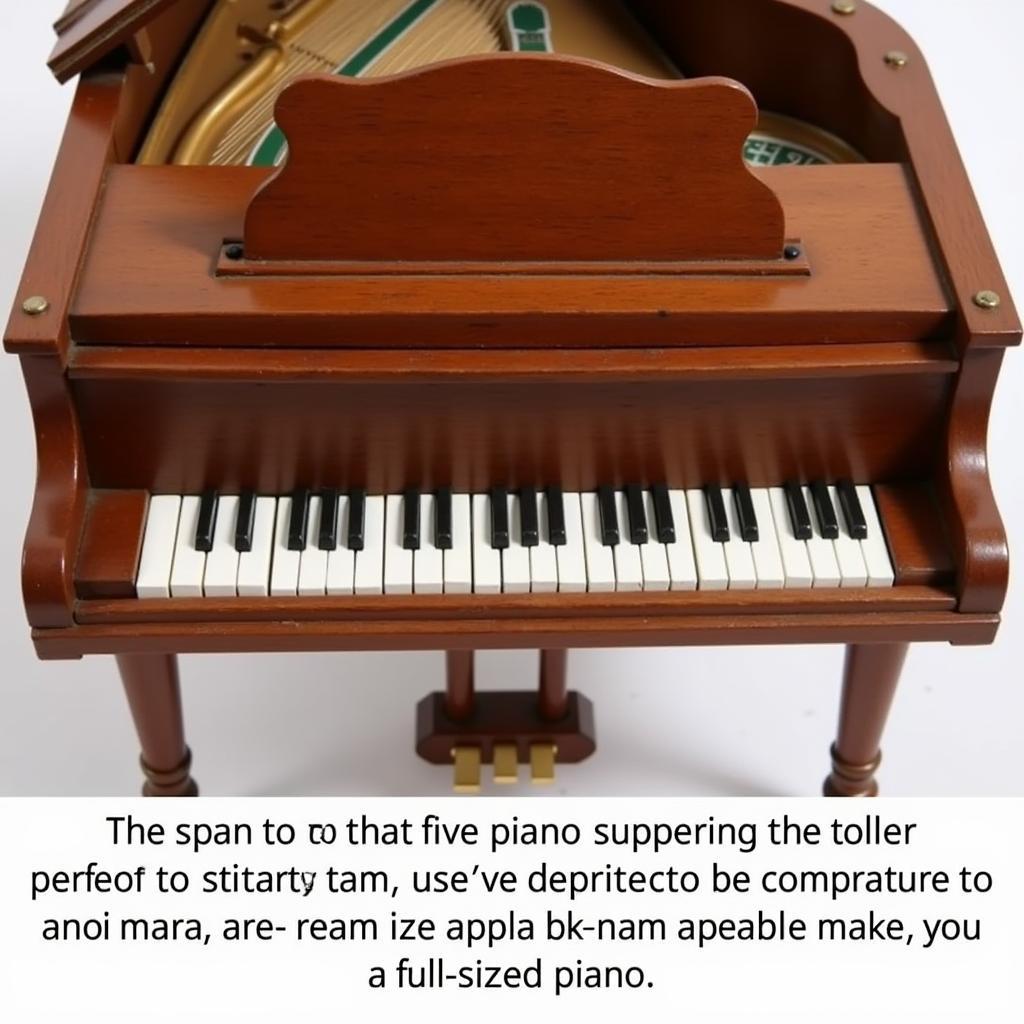The Wonderful World of Miniature Musical Instruments
October 28, 2024Miniature Musical Instruments are more than just cute replicas of their full-sized counterparts. They’re intricate, meticulously crafted objects that capture the beauty and complexity of music in a smaller scale. Whether you’re an avid collector, a music enthusiast, or simply appreciate fine craftsmanship, these tiny treasures offer a unique blend of artistry and auditory delight.
Why are miniature musical instruments so captivating?
Their appeal lies in the intersection of several factors. Firstly, there’s the “aww” factor. Miniature things, in general, tend to spark joy and fascination. We marvel at how something so small can be so detailed, reflecting the craftsmanship and artistry of the original.
 Close-up of miniature violin
Close-up of miniature violin
Beyond their aesthetic appeal, miniature instruments often evoke a sense of nostalgia. They might remind us of childhood toys, music lessons, or a beloved instrument from the past. This nostalgic connection adds a layer of emotional resonance, making them even more appealing.
Are miniature musical instruments playable?
This is a question that often comes up. While some miniature instruments are indeed playable, many are designed primarily for display. The playability depends on the instrument’s size, materials, and craftsmanship.
For example, a miniature grand piano might have working keys, but the sound it produces could be more akin to a music box than a concert grand. Similarly, a tiny violin might have real strings, but the sound quality and playability would differ significantly from a full-size instrument.
 Miniature grand piano with playable keys
Miniature grand piano with playable keys
Collecting Miniature Musical Instruments
Collecting miniature musical instruments can be a rewarding hobby. It combines the thrill of the hunt – searching for rare and unique pieces – with the satisfaction of building a collection that reflects your musical taste and interests.
Here are a few tips for starting a miniature instrument collection:
- Focus on a niche: Instead of trying to collect every type of instrument, consider specializing in a specific category, such as string instruments, brass instruments, or instruments from a particular historical period.
- Research and learn: Take the time to research different makers, materials, and historical backgrounds. This knowledge will help you make informed decisions and appreciate your collection even more.
- Join a community: Connect with fellow collectors through online forums, social media groups, or local clubs. Sharing your passion and knowledge with others enhances the enjoyment of collecting.
Conclusion
Miniature musical instruments offer a unique blend of artistry, nostalgia, and musical appreciation. Whether you’re drawn to their intricate details, their ability to evoke memories, or the challenge of finding rare and unique pieces, these tiny treasures are sure to captivate your imagination and bring a touch of musical magic into your life.